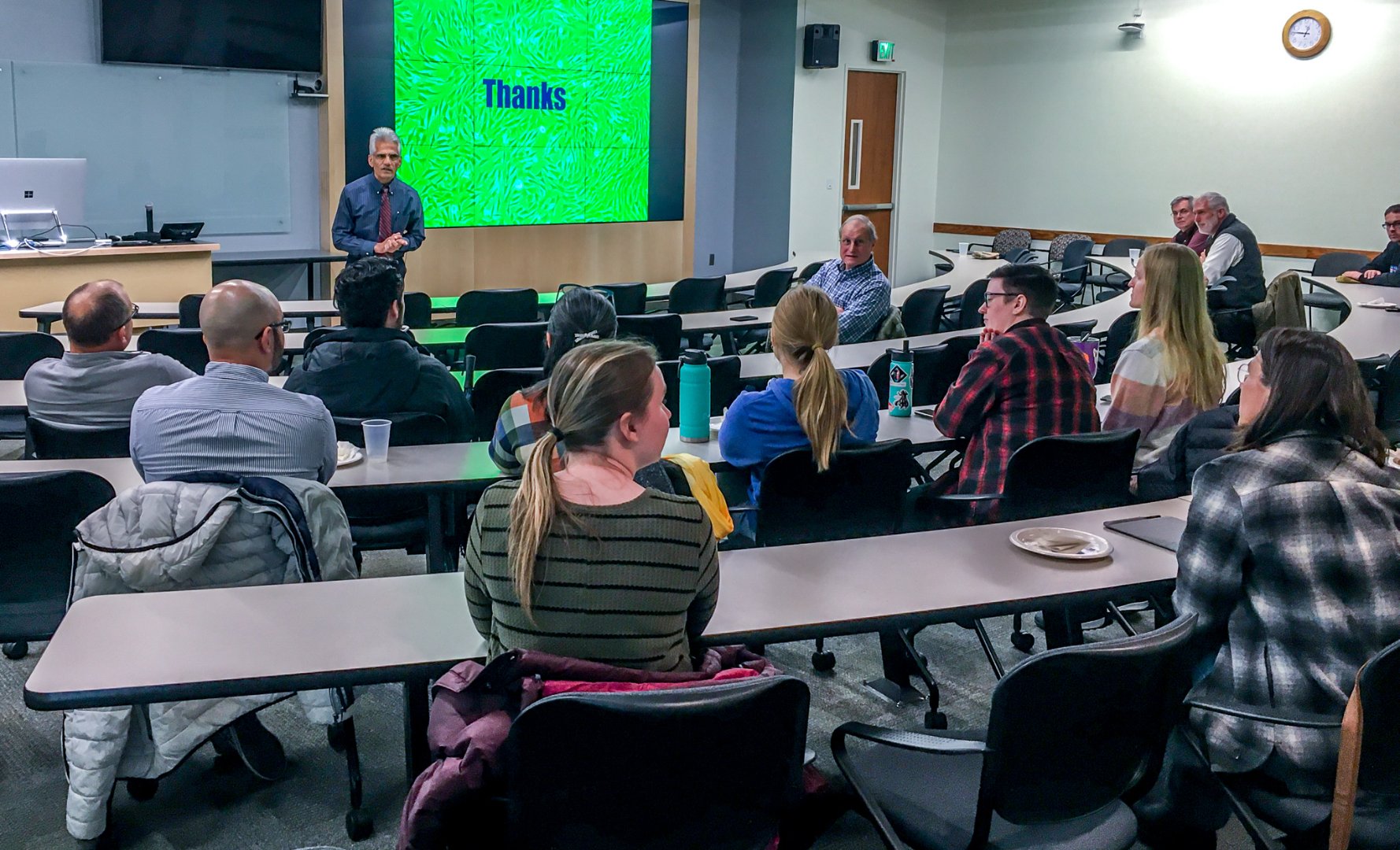Dr. Mahipal Singh, a Fort Valley State University (FVSU) professor of animal science and biotechnology, gave an eye-opening glimpse into his research on postmortem tissues during a recent seminar at Utah State University (USU).
The experienced scientist and educator presented his work on the recovery of live and proliferative cells from postmortem tissues to graduate students and faculty. He highlighted the potential use of postmortem tissues for the recovery of stem cells, cellular therapies in humans and veterinary medicine, and preservation of germplasm, which could be used to revive lost genetics in the future by somatic cell nuclear transfer (cloning).
Singh said USU representatives invited him to give a lecture for their seminar series after recently visiting FVSU’s agricultural facilities. The two land-grant universities signed a five-year memorandum of understanding in 2022, establishing a framework for the institutions to collaborate on activities of mutual interest.
“I had good interactions with several of the faculty members and graduate students,” he noted. “I toured their farms and laboratories, including the integrated biosystems facilities, surgical suites and classrooms.”
Singh said he was impressed with the institution’s investments in animal agriculture. “I feel confident that we may have some collaborative projects in the future, creating more opportunities for faculty and student exchanges and sharing knowledge and ideas for mutual benefits,” he added.
USU is conducting the monthly seminar series to feature research experts nationwide. Singh said the delegation was interested in his research on stem cell recovery. “We have a good niche in that area,” he said.
The animal science professor began this study in 2015. His lab utilizes molecular biological, reproductive, surgical and cell culture methods, and uses mainly goat and sheep models. In addition, his current research efforts include investigating the effect of the melatonin hormone on fetal development, neonate survival and growth performance in goats.
Singh explained that goat meat and milk are major sources of livelihood for small farmers around the world and are rapidly expanding in the southern United States due to nutritional benefits, manageable operations and an influx of African, Hispanic and Asian populations.
“The industry suffers in production efficiency due to fetal and neonatal losses, as well as the seasonality of the reproductive cycles,” he said. “Low birth weight of the offspring is associated with an increased rate of mortality.”
Singh revealed recent studies in rats and sheep show that melatonin supplementation increases blood vascular circulation in the uterine wall of the placenta, resulting in an increase in nutritional and oxygen supply to the growing fetus.
“Such studies in goats have not been adequately undertaken,” he noted. “Although goats and sheep have similar physiological systems, it is not clearly established if melatonin has a similar effect in goats.”
For that reason, the objectives of this research are to assess the effect of melatonin supplementation during gestation on uterine arterial blood flow, fetal growth and neonate survival. Also, Singh will assess the effect of melatonin on in-vitro oocyte maturation and embryo development and determine the base levels of melatonin receptor expression in various tissues. These studies can provide a mechanism for goat farmers to use melatonin supplements to enhance neonate and infant survival, growth performance, reproductive performance and profitability.
“This project will also provide an opportunity for training the next generation of scientists in animal biotechnology and reproductive technology, in addition to increasing their competence for undertaking other challenging projects,” Singh expressed.

